-
Careers and Employment
June 6, 2017For a complete list of jobs and funding opportunities, visit our sister site, Astrobiology at NASA – Careers
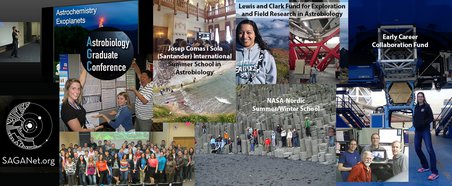
Training the next generation of astrobiology researchers is one of the top missions of the NAI. It’s carried out by providing support to students and early career investigators in a myriad of ways – encouraging field exploration and collaboration with members of the astrobiology community, supporting a unique early career conference, partnering internationally to provide summer and winter schools focused on astrobiology, and providing support to attend and present at national and international conferences.
The goals of these programs are for early career researchers to gain interdisciplinary and other scientific skills and knowledge (scientific and presentation techniques, etc.), expand collaborations, take steps towards an astrobiology career, and assume a professional identity as an astrobiologist.
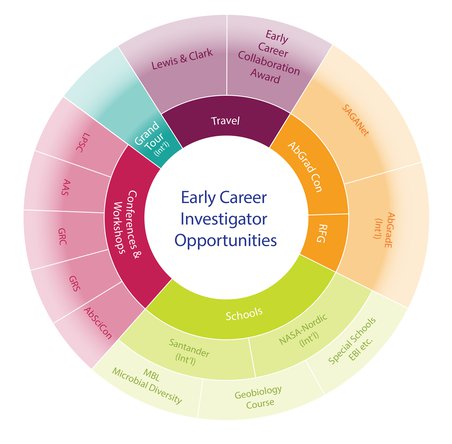
For career path suggestions, lists of courses and programs, scholarships and fellowships, and tips and trends, visit our sister site, Astrobiology at NASA – Careers
Funding Opportunities
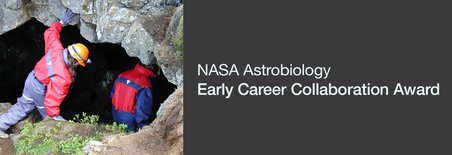
In response to requests by students for opportunities to visit with other researchers, the Early Career Collaboration Fund was established give postdocs and other early career scientists the opportunity to learn new techniques, measure their field samples on state of the art equipment, interact with mission planners, exchange expertise, and identify future collaboration opportunities.
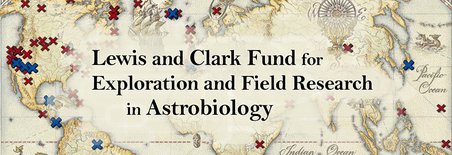
The Lewis and Clark Fund for Exploration and Field Research in Astrobiology, modeled after an existing program at the American Philosophical Society (APS) by the NAI’s founding director, Barry Blumberg, is focused on field research in astrobiology. Dr. Blumberg cited the opportunity he was afforded to conduct field research early in his career as instrumental to later success that led to his Nobel Prize. This opportunity promotes the continued exploration of the world around us by funding early career scientists to collect their own samples and data, and has been highly successful in increasing the participants skill sets and expanding their groups of collaborators.
Conferences and Networking:
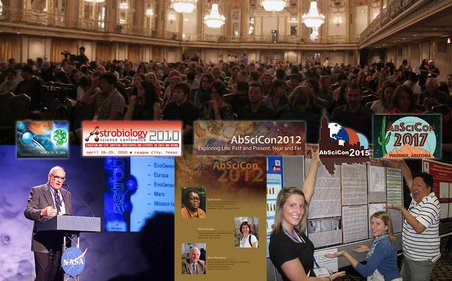
The NAI supports activities at the Astrobiology Science Conference (AbSciCon) which is the astrobiology conference providing a forum for reporting on new discoveries, sharing data and insights, advancing collaborative efforts and initiating new ones, planning new projects, and educating the next generation of astrobiologists. The NAI coordinates and supports student travel awards, the student poster competition, lightning talks, EPO activities, and numerous meetings.
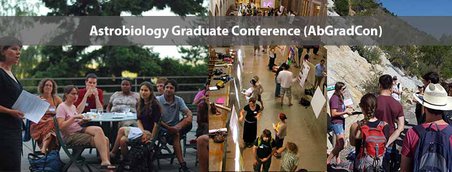
Since 2004 the NAI has supported and encouraged the Astrobiology Graduate Conference (AbGradCon), organized by and for the astrobiology early career community. In 2009 the organizers leveraged the use of NAI’s collaboration infrastructure and technical support to make portions of the conference available remotely. Visit the AbGradCon Channel to view all past recordings.
The AbGradCon organizers have also spun off a program, the Early Career Astrobiology Research Focus Group (RFG), which models the NAI by encouraging the formation of cross disciplinary groups that develop a research project, prepare a proposal, present it and then conduct peer review to select the top three proposals.
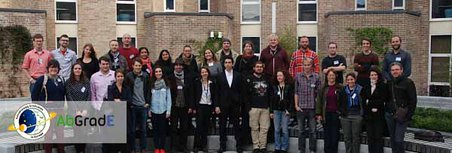 Participants and keynote lecturers of the first AbGradE symposium in 2014. Photo courtesy AbGradE, Baptiste Journaux
Participants and keynote lecturers of the first AbGradE symposium in 2014. Photo courtesy AbGradE, Baptiste JournauxModeled after AbGradCon, Astrobiology Graduates in Europe (AbGradE) held its inaugural conference in October, 2014 in EdinburghIn and continues to be held annually.
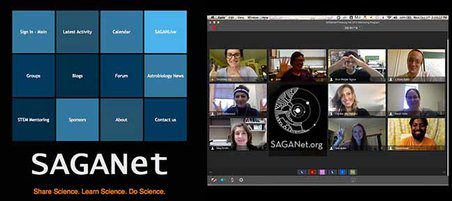 SAGANet webpage and a screenshot of the SAGANet mentors as they prepare to engage students in the Pittsburg Community School Astrobiology Science Challenge.
SAGANet webpage and a screenshot of the SAGANet mentors as they prepare to engage students in the Pittsburg Community School Astrobiology Science Challenge.After the 2009 AbGradCon—and following other opportunities to interact, particularly the 2006 Santander Summer School—a group of participants were so energized by the networking and mentoring that they experienced they formed a group, the Social Action for a Grassroots Astrobiology Network, SAGANet, to expand the reach beyond the 70 – 80 participants at AbGradCon. The network includes aspects of collaboration, mentoring and social media to expand the astrobiology community via blogging, book clubs, K-12 classroom opportunities, webstreaming of workshops and conferences, an “Ask an Astrobiologist” seminar series, a newsletter, and mentoring activities.
Summer and Winter schools:

The Josep Comas i Sola (Santander) International Summer School in Astrobiology was started in 2002 and is co-sponsored by the NAI and the Centro de Astrobiologia. Held annually in Santander, Spain, the week-long program for graduate students and postdoctoral fellows provides lectures from international experts, round-table discussions, student projects, night-sky observations, and a half-day field trip to a nearby site of astrobiological interest.
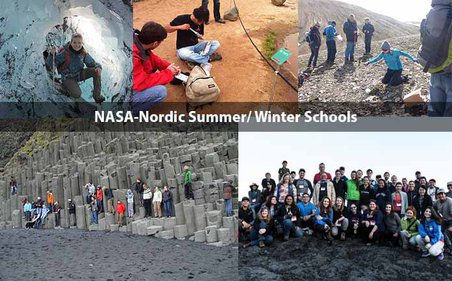
The NASA-Nordic Summer/Winter Schools began in 2005 as partnership between the NAI University of Hawaii Team and the Nordic Network for Astrobiology. This educational experience is aimed at early career scientists featuring world class speakers, unique field-trips and an opportunity to meet and interact with a cohort of like-minded young scientists. Participants often report life-changing experiences that impact their career decisions.